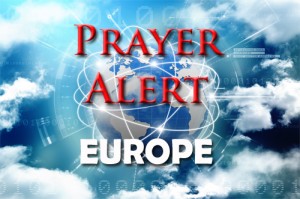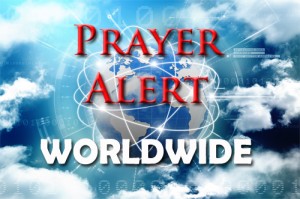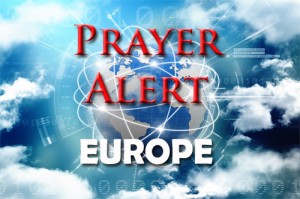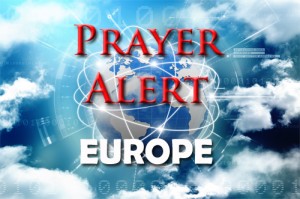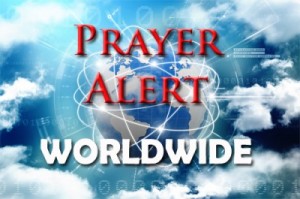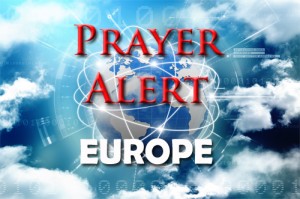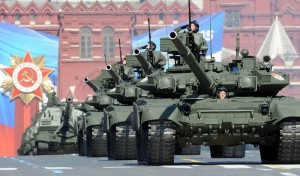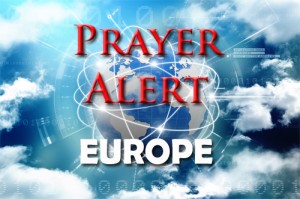Displaying items by tag: NATO
Norway: NATO war games
NATO has launched its biggest military exercises since the end of the Cold War, amid rising tensions with Russia. About 50,000 soldiers from 31 countries are taking part in a mock battle in Norway, against an invading force named Trident Juncture 18. The battle is scheduled to run until 7 November. NATO secretary-general Jens Stoltenberg said the drills would send a clear message to ‘any potential adversary’. Washington is contributing the biggest contingent of troops to the exercises, which are taking place just weeks after Russia staged its own largest-ever military drills.
Syria: Idlib, the final battle
Syria is preparing to take back the last stronghold, Idlib, and Russia is warning of a terrorist chemical attack. American warships, cruise missile delivery systems, strategic bombers and other hardware arrived in the Mediterranean and the Persian Gulf on 27/28 August, and NATO has called for restraint (see ) If violence escalates in Idlib, the two million people in the area will be in grave danger. Militants seem reluctant to lay down their arms, which makes the coming days crucial for the fate of Idlib and all Syria. A Russian press release (see) stated, ‘A military strike against terrorists occupying Idlib will inevitably happen, and Moscow and Ankara see eye to eye here.’ However, Turkey has twelve military outposts in Idlib governorate under an agreement with Russia and Iran for ‘de-escalation zones’, and there are intense diplomatic talks between Ankara and Moscow to prevent a Russian-backed Syrian army invasion. See
Brussels: Trump’s visit
President Trump’s seventh foreign trip of his presidency took him to Brussels NATO meetings, where he called members of the alliance ‘delinquent’ in their defence spending and insisting they increase it ‘immediately.’ The NATO summit focused on ‘Make Peace Great Again’, but Trump's provocative comments aimed at Germany amplified the unease and detracted from the summit's goal of projecting unity in the face of Russian aggression (see World article on Israel/Russia/Syria). However Trump and NATO leaders did agree to bolster their defence and deterrence capabilities to head off Russian threats. In both Brussels and the UK thousands have shown their negative opinions of president, stating, ‘He is not welcome because he predicts a world of war, detains children in cages, has discriminatory travel bans, and policies on women's rights and climate change. See
NATO focusses on Afghanistan
NATO leaders moved beyond the demands of Donald Trump for higher defence spending, and focussed on ending the long war in Afghanistan, in the second day of a summit in Brussels underscored by transatlantic tensions. They welcomed non-NATO partners, including Afghan president Ashraf Ghani and Ukraine's Petro Poroshenko, to focus on policy rather than politics. On the first day, Theresa May had announced an additional 440 personnel for the Resolute Support mission in Afghanistan, saying, ‘I think that shows when NATO calls, the UK is one of the first to step up.’ NATO chief Jens Stoltenberg wants leaders to agree to fund Afghan security forces until 2024, despite public fatigue in Western countries about their involvement in the conflict. US officials told Reuters, ‘Washington is preparing another review of strategy’, a year after Trump begrudgingly agreed to extend involvement in the 17-year-old war.
Russian threat to global democracy
Theresa May is warning leaders of Russia’s threat to all democracies; Russia has ‘shown itself to be a strategic enemy not a strategic partner’. Mrs May believes that although the attempted assassination of the Skripals took place on UK soil, the Russian threat does not respect borders and it places all nations at risk, adding, ‘As a European democracy, the UK will stand shoulder to shoulder with the EU and Nato members to face these threats together. United, we will succeed.’ Whitehall stressed the response to the Salisbury attack was carefully calibrated to remain within the law, and the UK was not looking for huge confrontations with Russia or regime change. The US, UK, France and Germany recently signed up to a very strong and uncompromising statement, and the prime minister is now using blunt language to the world and to the rest of EU member states.
Montenegro: Serb attacks US embassy
At midnight on 21 February Serbian Dalibor Jaukovic, formerly of the Yugoslav People's Army, threw a grenade into the US embassy compound and then blew himself up. According to Facebook publications he was against Montenegro's accession to NATO. Montenegro, the youngest member of NATO, has for a long time been politically torn between her historic friend Russia and the USA. Historically, on the eve of the 2016 election, long-serving prime minister Duško Marković stepped down after suggesting that Russia had a role in an election plot. He said that there was a ‘strong connection of a foreign factor’ in a conspiracy to take over the Montenegrin parliament on election day. Those arrested by the police for planning this coup included more Russians and Serbians than Montenegrins. See
Russia’s Aggressive Moves
Russia threatens power grids with cyber weapon. The Washington Post reports hackers allied with the Russian government have devised a cyber-weapon that has the potential to be the most disruptive yet against electric systems that have the potential to disrupt all American lives. The malware, which researchers have dubbed CrashOverride, is known to have disrupted only one energy system (Ukraine). In that instance, the hackers shut down one-fifth of the power generated in Kiev. Once modified the malware could be deployed against U.S. electric transmission and distribution systems to a devastating effect. A cyber-security firm says the malware “is the culmination of over a decade of theory and attack scenarios.” “It’s a game changer.” …Unfortunately the U.S. is slow addressing the threat and as a result is very vulnerable.
Russia stages 100,000 troops on NATO’s border. Defense One reports Russia and Belarus are preparing for a military exercise on NATO’s flank. Russia’s every-four-year joint exercise with Belarus, Zapad (“West”) 2017, simulates a full-scale conflict with the West. Lithuania’s defense minister said “it’s not comfortable at all when we expect to have 100,000 troops around our borders.” It is noteworthy the scheduled exercise will be the first since Russia annexed Crimea in 2014. Defense One reports several Baltic officials believe Russia may leave troops in Belarus after the exercise, something similar seen in past operations such as the Republic of Georgia, Crimea and Eastern Ukraine.
Ukraine conflict escalates. Radio Free Europe reports the U.N. announced hostilities have been escalating in eastern Ukraine in recent months because parties to the armed conflict have “repeatedly failed to implement cease-fire agreements.” The U.N. announcement said cease-fire violations on both Ukrainian armed forces and Russia-backed separatists in eastern Ukraine have allowed “hostilities to escalate and claim more live as the conflict moved into its fourth year.” The conflict that started in mid-April 2014 has claimed 10,090 lives – including 2,777 civilians. Note: Russia fuels the conflict and will never back-down because Ukraine is the psychological birthplace of the Russian people.
Robert Lee Maginnis
https://www.facebook.com/RLMaginnis/
Pray that Russia will change its attitude and pull back from its aggressive actions on the border with NATO and in eastern Ukraine. Pray that a better relationship may develop with the USA and between presidents Vladimir Putin and Donald Trump.
European leaders hoping for Trump’s favour
Brussels, which he called a ‘hellhole,’ the European Union, which he called ‘a vehicle for Germany,’ and NATO, which he called ‘obsolete,’ welcomed President Trump on Wednesday. Security was tight after the Manchester terrorist attack on Monday, with police brought in from all over Belgium and some neighbouring countries. The two-day visit was studded with deliberately brief meetings and only modest substance. This was a chance for President Trump to meet and greet about thirty European leaders, and for them to try to get him to understand more fully the importance of the EU and NATO in keeping the peace. They hope for praise and support from Mr Trump, who has aligned himself more with the critics of the EU.
